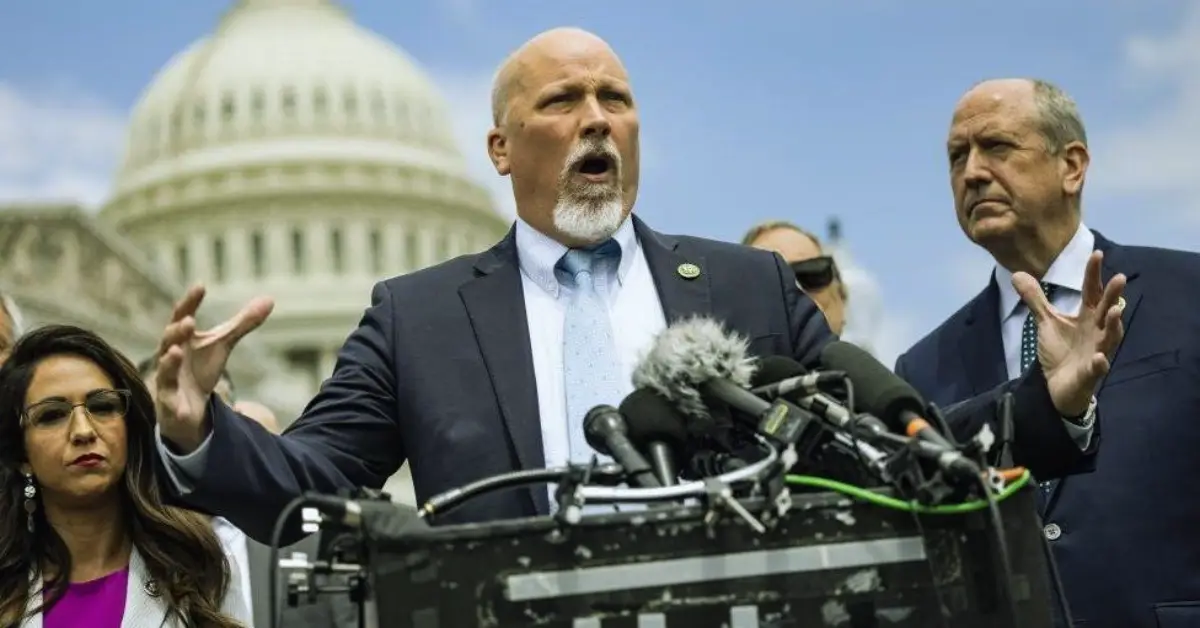House Passes Debt Limit Deal to Safeguard National Economy!
As politicians hurry to avert a disastrous default, the US House of Representatives passed a bill suspending the country’s debt ceiling until January 1, 2025. Before being brought to President Joe Biden to be signed into law, the Senate must approve the bill.
Any senator in the Senate can stall a quick vote, and it is unclear when the matter will come to a voice. There is a lot of pressure on the leadership in both parties because of how little time there is to carry the law through Congress and how little space there is for error.
Before June 5, when the Treasury Department stated it would no longer be able to pay all of the country’s debts in full and on time, lawmakers are working against the clock to escape a first-ever default, which may result in a catastrophe for the world economy.
Despite opposition from the far right and the far left, the debt ceiling bill ultimately cleared the House with a sizable amount of bipartisan support.
The vote was 314 to 117 in favor in the end. 149 Republicans and 165 Democrats supported the bill, while 71 Republicans and 46 Democrats opposed it.
More articles that are identical to this one are provided below, For more of the same, read on:
- Bruce Willis’s Wife Thanks Fans For Support Amid Heartbreaking News
- New California Laws In 2023: Numerous Bills Signed Into Law By Gov. Gavin Newsom
The fear of default is removed until after the election by suspending the debt ceiling to 2025. The plan limits non-defense spending, increases work requirements for some beneficiaries of food stamps, claws back some Covid-19 relief monies, and addresses the debt ceiling among other policy issues.
The White House and House Republicans unveiled their bipartisan debt ceiling agreement over the weekend, capping days and nights of acrimonious discussions that at times seemed like they may break down and fail completely.
House Speaker Kevin McCarthy and Vice President Joe Biden’s leadership have been tested in the quest to reach a debt ceiling agreement. Immediately following the House vote, Biden praised the outcome, saying, “I have been clear that the only path forward is a bipartisan compromise that can earn the support of both parties.”
Tonight, the House took a critical step forward to prevent a first-ever default and protect our country’s hard-earned and historic economic recovery.
I have been clear that the only path forward is a bipartisan compromise that can earn the support of both parties. This agreement…
— President Biden (@POTUS) June 1, 2023
“This agreement meets that test. I urge the Senate to pass it as quickly as possible so that I can sign it into law, and our country can continue building the strongest economy in the world.”
After the House approved the agreement, McCarthy celebrated by saying: “I have been thinking about this day since before my vote for speaker because I knew the debt ceiling was coming. I wanted to make history.”

Before the vote, the speaker and his closest friends expressed confidence that the House would approve the agreement. McCarthy told reporters at the Capitol on Tuesday, “I am confident we will pass the bill.”
The chamber earlier on Wednesday passed a crucial need for moving on to a final vote when it approved a rule governing floor discussion of the debt ceiling bill. Typically, only the majority party supports practices, while the minority opposes them.
But in this instance, 52 Democrats cast “yes” votes to pass the legislation after 29 Republicans cast “no” votes. A familiar person said that Democratic leaders encouraged their members to let Republicans present their votes for the rule first.
The plan was to make Republicans sweat and expose the sheer number of defectors among GOP leaders. Deep differences within the House Republican conference were revealed by the defections. The rule’s approval paved the path for the day’s final House vote on the legislation.
McCarthy was informed in a letter from the Congressional Budget Office on Tuesday night that the package will lower budget deficits by $1.5 trillion over the following 10 years. According to the agency’s letter, if the law is passed,
“mandatory spending would, on net, decrease by $10 billion, and revenues would, on net, decrease by $2 billion over the 2023–2033 period.” “As a consequence, interest on the public debt would decline by $188 billion.” Over the years 2024–2033, there would be an estimated $1.3 trillion decrease in discretionary spending.
However, the CBO also cautioned that revisions to the food stamp program’s work requirement elements “would increase federal spending by about $2.1 billion over the 2023-2033 period.” which was concerning for McCarthy. Veterans,
Americans who are homeless and former foster children of all ages would be excused from the bill’s increased labor requirement upper age limit of 54. According to the organization, when these rules were implemented entirely from 2025 to 2030, the number of persons getting benefits would rise by an average of 78,000 monthly.
This post will be helpful to you and you will enjoy reading it. We hope it has been informative and engaging. Comment below to let us know if you found this content helpful.


